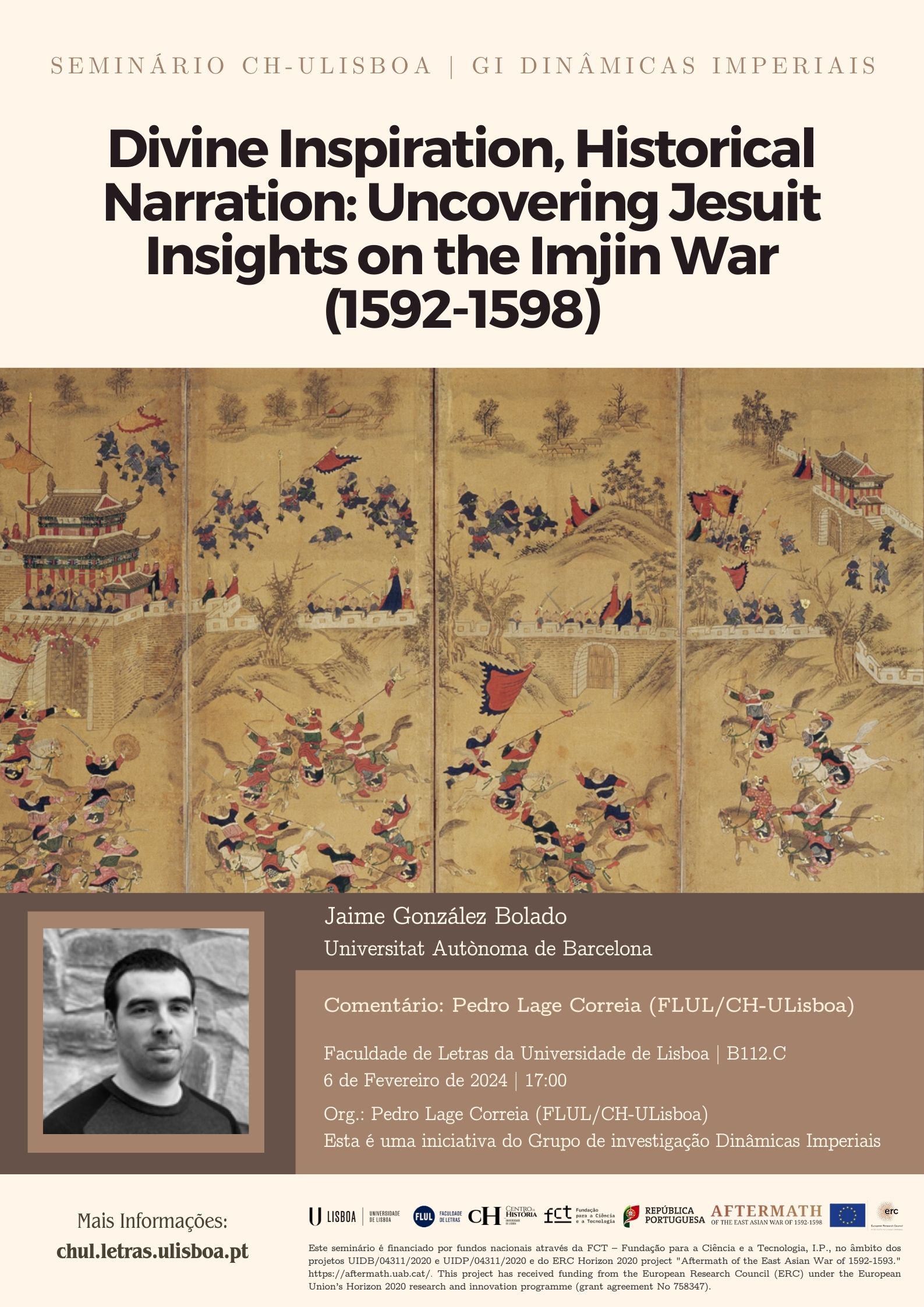Seminário CH-ULisboa
Divine Inspiration, Historical Narration: Uncovering Jesuit Insights on the Imjin War (1592-1598)
Jaime González Bolado (Universidad Autónoma de Barcelona)
6 de Fevereiro de 2024 | 17h00
Faculdade de Letras da Universidade de Lisboa | B112.C
Comentário | Pedro Lage Correia (FLUL/CH-ULisboa)
Organização | Pedro Lage Correia (FLUL/CH-ULisboa)
Grupo de Investigação | Dinâmicas Imperiais
Descarregar cartaz | Descarregar Folha de Sala

Abstract: Towards the end of the 16th century, East Asia became the stage for a unique and consequential conflict. After unifying Japan and bringing the remaining daimyos (feudal lords) under his control, the Japanese warlord Toyotomi Hideyoshi embarked on the conquest of the Asian continent. His utopian project resulted in a war that mobilized over half a million soldiers and had a decisive impact on the historical course of the region. Due to the involvement of converted lords in this conflict, who were the main supporters and protectors of European missionaries in Japanese lands, the latter devoted considerable effort to capture in their writings a rich tapestry of opinions and information. The study of these writings is essential for a comprehensive understanding of the complexities of the war.
Bio: Jaime González Bolado, a scholar with a B.A. and M.A. in History from the Universidad de Cantabria and an M.A. in Japanese Studies from the Universidad de Zaragoza, is currently a Ph.D. student at the Universidad Autónoma de Barcelona. As a core member of the research group "Aftermath of the Imjin War," Jaime's research focuses on the study of Japanese history through accounts written by European missionaries. The goal of his Ph.D. is to highlight the significance that Japanese converts had in the development of the Imjin War, and to bring to light aspects of this conflict neglected by Asian sources.
Institution information: ERC Horizon 2020 project "Aftermath of the East Asian War of 1592-1593." https://aftermath.uab.cat/. This project has received funding from the European Research Council (ERC) under the European Union’s Horizon 2020 research and innovation programme (grant agreement No 758347).

